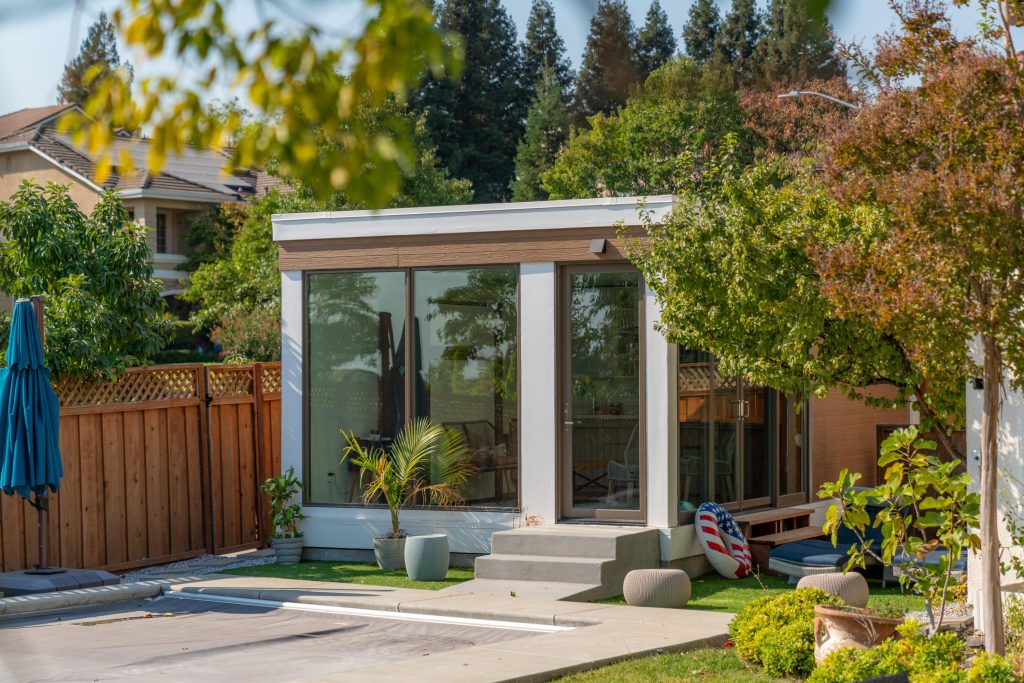Once upon a time, the idea of 3D-printed homes felt like a thing of the future.
But as housing gets less and less affordable — especially in ultra-expensive markets such as the Bay Area — companies are getting creative in their quest to build more affordable homes using technology.
One of those companies, Oakland-based Mighty Buildings, just raised $40 million in Series B funding for its quest to create homes that it says are “beautiful, sustainable and affordable” using 3D printing, robotics and automation. It claims to be able to 3D print structures “two times as quickly with 95% less labor hours and 10-times less waste” than conventional construction. For example, it says it can 3D print a 350-square-foot studio apartment in just 24 hours.
The four-year-old startup’s efforts caught the eye of Khosla Ventures, which co-led the financing along with Zeno Ventures.
Ryno Blignaut, an operating partner at Khosla, believes that Mighty Buildings — which launched out of stealth last August — has the potential to cut both the cost and carbon footprint of home construction “by 50% or more.”
The company takes a hybrid approach to home construction, combining 3D printing and prefab (meaning built offsite) building, according to co-founder and COO Alexey Dubov. It has invented a proprietary thermoset composite material called Light Stone Material (LSM) as part of its effort to reduce the home construction industry’s reliance on concrete and steel.
The material can be 3D printed and hardens almost immediately, according to the company, while also maintaining cohesion between layers to create a monolithic structure. Mighty Buildings can then 3D print elements like overhangs or ceilings without the need for additional supporting formwork. That way, it’s able to fully print a structure and not just the walls.
Robotic arms can post-process the composite, which combined with the company’s ability to automate the pouring of insulation and the 3D printing gives Mighty Buildings the ability to automate up to 80% of the construction process, the company claims.
Khosla was drawn to the Mighty Buildings’ innovative approach.
“We believe in dematerializing buildings and non-linearly reducing the amount of cement and steel used, thereby reducing the cost of construction in order to increase affordable access to housing together with improved sustainability,” Blignaut wrote via email.
Mighty Building’s use of 3D printing, advanced manufacturing techniques, modern robotics and “new lighter and stronger materials” gives it an edge, he added.
Since its launch, the company has produced and installed a number of accessory dwelling units (ADUs) and is now taking orders for Mighty Houses — its newest product line that will range from 864 to 1,440 square feet at an estimated cost of $304,000 to $420,500. (Similarly sized houses in some parts of the Bay Area can sell for upwards of $1 million).
The units are created with a 3D-printed exterior panelized shell while certain elements — such as bathrooms for example — are prefabricated in the company’s 79,000-square-foot production facility in Oakland.
For now, the company is only building in California, but Dubov says it’s open to exploring other markets as its factory can be replicated.
Also, Mighty Buildings plans this year to market its Mighty Kit System and a new fiber-reinforced material for multi-story projects as part of a planned B2B platform for developers. In fact, the company already has secured contracts with developers for its single family housing product line. It also plans to use the new capital in part to scale its production capacity with increased automation.
Ultimately, Mighty Building’s vision is to provide production-as-a-service, with builders and architects designing their own structures and then developers using Mighty Factories to produce them at scale.
Mighty Buildings is not the only startup doing 3D-printed homes. Last August, Austin-based ICON raised $35 million in Series A funding. The company also aims to reinvent building affordable homes with the use of 3D printers, robotics and advanced materials. The biggest difference between the two companies, according to Dubov, is that ICON does primarily onsite construction while Mighty Buildings prefabricates in a factory.
More than a dozen other investors also participated in Mighty Building’s latest round, including returning backers Bold Capital Partners, Giant Ventures, Core Innovation Capital and Foundamental and new investors including ArcTern Ventures, Abies Ventures, Modern Venture Partners, MicroVentures, One Way Ventures, Polyvalent Capital and others. Mighty Buildings was also included in Y Combinator’s Top companies list, all of which have valuations over $150 million (although the company declined to reveal its current valuation).
For its part, Khosla’s Blignaut believes that buildings are “a big part of our urban landscape and a large consumer of resources.”
“Construction and building account for more carbon emissions in the U.S. than transportation or industry,” he said. Other portfolio companies addressing such challenges include Ori Living, Vicarious, Katerra and Arevo.































Comment